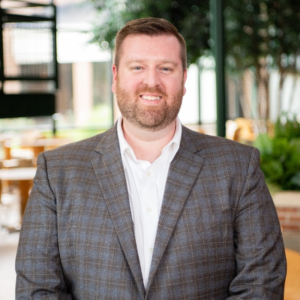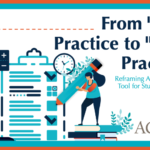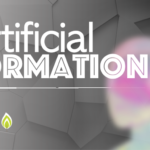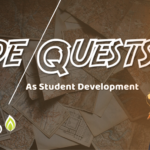![]() This content is brought to you by the Association for Christians in Student Development (ACSD), a volunteer membership organization committed to equipping and challenging faithful professionals to infuse their Christian faith into student development practice and scholarship. Thoughtful content such as this is made possible by volunteer contributions and the financial support of membership dues. Interested in becoming a member for more awesome content just like this? Join today by clicking here!
This content is brought to you by the Association for Christians in Student Development (ACSD), a volunteer membership organization committed to equipping and challenging faithful professionals to infuse their Christian faith into student development practice and scholarship. Thoughtful content such as this is made possible by volunteer contributions and the financial support of membership dues. Interested in becoming a member for more awesome content just like this? Join today by clicking here!
In a world increasingly marked by isolation and fragmented relationships, the deep human need for belonging stands as a beacon of hope and purpose. Whether in educational institutions, workplaces, or faith communities, people long to feel known, valued, and connected. However, while much attention has been given to fostering a sense of belonging, less has been said about the nature of the communities we strive to build. What makes a community not just a place of belonging, but a place people are eager to join?
The early church described in Acts 2:42-47 offers a profound model of such a community — one so compelling that “the Lord added to their number daily those who were being saved” (Acts 2:47, NIV). What made this community so irresistible? Let’s explore a few key characteristics that made the early church a magnetic force and consider how we can cultivate similar communities today.
1. A Compelling Community is Devoted to Spiritual Habits
At the heart of the early church’s appeal was its devotion to spiritual practices that fostered deep, transformative connections with God and each other. Acts 2:42 tells us that they devoted themselves to the apostles’ teaching, fellowship, the breaking of bread, and prayer. These practices were not just religious rituals; they were the lifeblood of the community, nurturing both individual and collective spiritual growth.
There are seven spiritual habits outlined in this passage:
- Apostles’ Teachings: The early believers were deeply rooted in the teachings of the apostles, who had been instructed by Jesus Himself. These teachings included scripture readings, messages on the resurrection, and lessons from Jesus’ ministry. Today, a compelling community must remain anchored in the truth of God’s Word, continually seeking to grow in understanding and application.
- Fellowship: The Greek word for fellowship, koinonia, implies a close, intimate association. The early Christians shared life together, breaking bread and supporting one another. In our institutions, fostering true fellowship means creating spaces where people can connect meaningfully, share their lives, and support each other in their spiritual journeys.
- Prayer: Prayer was central to the early church’s life. They prayed corporately, in each other’s homes, and individually. A compelling community is one where prayer is not an afterthought but a foundation, inviting God’s presence and guidance into every aspect of life.
- Stewardship: Acts 2:44-45 highlights how the believers shared their resources, ensuring no one was in need. Stewardship in a compelling community involves wisely managing and sharing resources—time, talent, and treasure—for the benefit of all.
- Service: The early Christians sold their possessions to care for those in need, demonstrating a radical commitment to service. In our communities, a culture of service, where members are eager to help one another, strengthens bonds and exemplifies Christ’s love.
- Worship: The early church met regularly to praise God with glad and sincere hearts (Acts 2:46-47). Worship, both communal and individual, is a powerful expression of our devotion to God and our unity as His people.
- Witness: The early church’s vibrant witness, both through their words and the example of their lives, drew others to Christ. A compelling community does not keep its light hidden but actively shares the Good News, inviting others into the joy and transformation they have found.
Imagine if our institutions collectively committed to fostering these spiritual habits. The impact could be profound — transforming our communities into places where people not only belong but are eager to participate.
2. A Compelling Community is United
Unity was another hallmark of the early church. Acts 2:44 describes how “all the believers were together and had everything in common.” This unity was not about uniformity — where everyone is the same — but about a shared commitment to a common mission, goal, or purpose.
A compelling community celebrates diversity while remaining united in purpose. This unity allows for the richness of different gifts, backgrounds, and perspectives to be woven together into a stronger, more vibrant whole. The early church’s unity was rooted in their shared faith in Christ and their commitment to living out His teachings. Similarly, today’s communities must find their unity in shared values and a common mission, even as they embrace the diversity of their members.
3. A Compelling Community is Joyful
The early Christians were marked by joy. Acts 2:46-47 describes how they “ate together with glad and sincere hearts, praising God and enjoying the favor of all the people.” Their gatherings were filled with joy, not just because of what they did, but because of who they were together — a community united in Christ.
In today’s context, especially within educational institutions, the focus often falls heavily on learning outcomes, assessments, and accreditation cycles. While these are important, we must not lose sight of the role joy plays in creating a compelling community. Joyful interactions, shared meals, and even play are essential in building relationships and creating a sense of belonging.
Jonathan Haidt, in his book The Anxious Generation, argues that the shift from play-based childhoods to screen-based ones has hindered our ability to form meaningful connections. As we strive to foster compelling communities, we must remember the importance of joy and play in developing bonds that lead to deeper, more fulfilling relationships.
Conclusion: Fostering a Compelling Community
The early church in Acts 2:42-47 offers us a powerful blueprint for creating communities that are not only welcoming but compelling. By devoting ourselves to spiritual habits, fostering unity without uniformity, and cultivating joy, we can create environments where people feel known, valued, and eager to belong.
In today’s world, where isolation and loneliness are prevalent, such communities are more needed than ever. As we strive to build compelling communities — whether in our schools, workplaces, or churches — let us look to the early church as our model, trusting that God will bless our efforts as He did theirs, drawing people to Himself and to each other in love.







